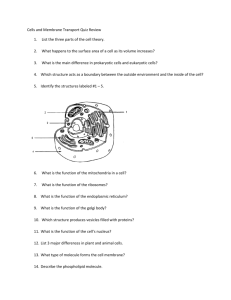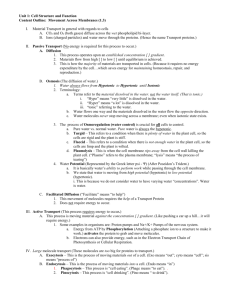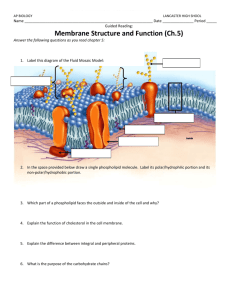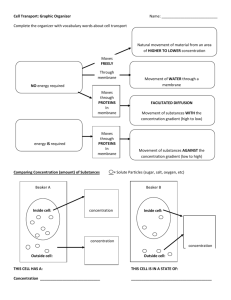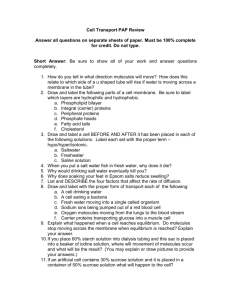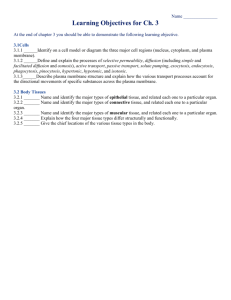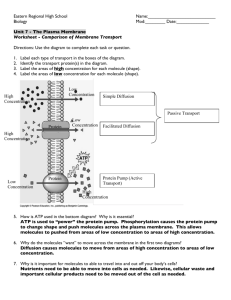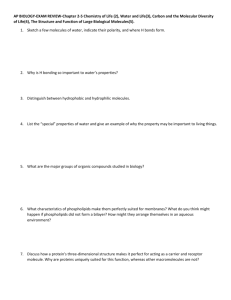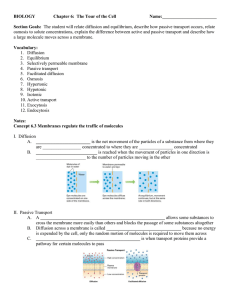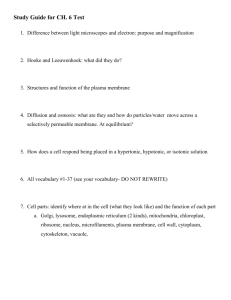Cell Membrane Review Worksheet: Biology High School
advertisement
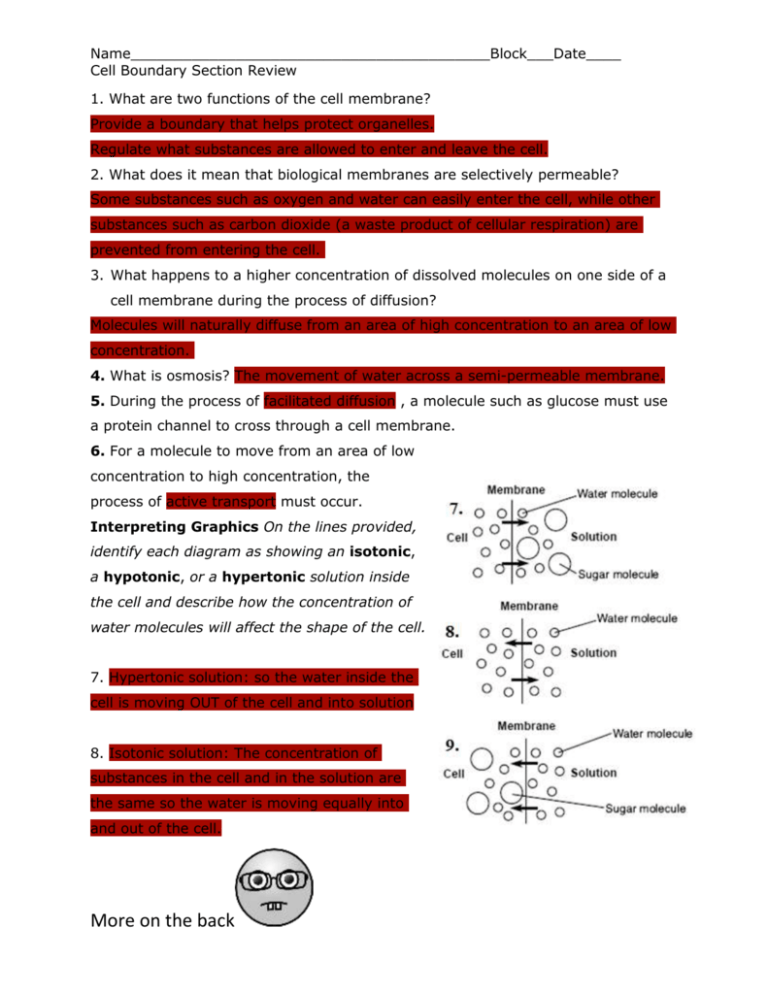
Name_________________________________________Block___Date____ Cell Boundary Section Review 1. What are two functions of the cell membrane? Provide a boundary that helps protect organelles. Regulate what substances are allowed to enter and leave the cell. 2. What does it mean that biological membranes are selectively permeable? Some substances such as oxygen and water can easily enter the cell, while other substances such as carbon dioxide (a waste product of cellular respiration) are prevented from entering the cell. 3. What happens to a higher concentration of dissolved molecules on one side of a cell membrane during the process of diffusion? Molecules will naturally diffuse from an area of high concentration to an area of low concentration. 4. What is osmosis? The movement of water across a semi-permeable membrane. 5. During the process of facilitated diffusion , a molecule such as glucose must use a protein channel to cross through a cell membrane. 6. For a molecule to move from an area of low concentration to high concentration, the process of active transport must occur. Interpreting Graphics On the lines provided, identify each diagram as showing an isotonic, a hypotonic, or a hypertonic solution inside the cell and describe how the concentration of water molecules will affect the shape of the cell. 7. Hypertonic solution: so the water inside the cell is moving OUT of the cell and into solution 8. Isotonic solution: The concentration of substances in the cell and in the solution are the same so the water is moving equally into and out of the cell. More on the back 9. Hypotonic solution: The water is moving out of the solution and into the cell. 10. The molecules of solute in the illustration are moving through the cell membrane from top to bottom. Indicate with labels which side of the membrane has a high concentration of solute and which has a low concentration. Diffusion is happening from the top area (outside of the cell) where the concentration is higher, and moving through the cell membrane toward the lower concentration of solutes inside the cell.
